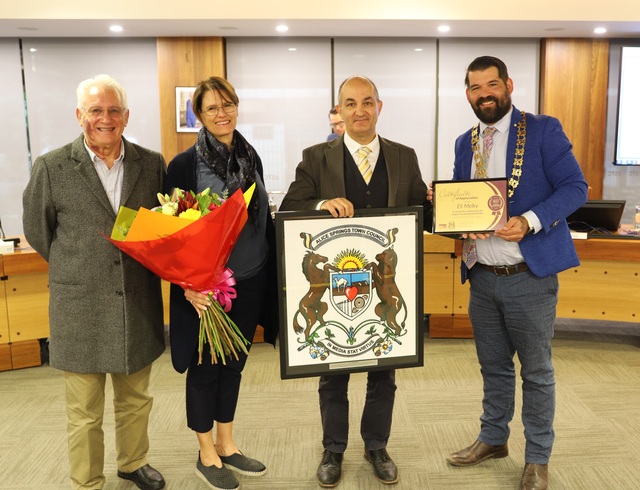On 4 June the Municipal Association of Victoria (MAV) convened a meeting to discuss the role of Local Government in facilitating the takeup of the Transition Town (or city or neighbourhood) initiative across Victorian communities.
The potential to link community planning processes to Transition Initiatives was also discussed. There are currently over 500 community plans in Victoria.
The meeting attracted Councillors, CEOs and officers from councils across Victoria.
Transition Towns began in September 2006 and has since grown into a worldwide movement.
The Transition Town initiative is a model designed to harness collective genius at the local grassroots level to address the most important question of the 21st century.
This enables local communities to address the question, “For all life processes that sustain this community, how do we significantly increase our resilience to provide for our needs with much less fossil fuel while simultaneously reducing carbon emissions?”
The Transition Town model states that “The future with less oil could, if enough thinking and design is applied sufficiently in advance, be preferable to the present. There is no reason why a lower energy, more resilient future needs to have a lower quality of
life than the present.
“A future with a revitalised local economy would have many advantages over the present, including a happier and less stressed population, an improved environment and increased stability.”
As such Transition Towns is an inspiring vision and action plan on how a community can move to an energy lean, carbon constrained, and relocalised future that is abundant, sustainable, pleasurable and resilient.
Standing at a crossroads in human history, the choices we make now – about economic growth, energy usage and carbon emissions – will affect generations to come.
Transition Initiatives are based on the following four key assumptions:
• that life with dramatically lower energy consumption is inevitable, and that it’s better to plan for it than to be taken by surprise
• that our settlements and communities presently lack the resilience to enable them to weather the severe energy shocks that will accompany climate change/peak oil
• that we have to act collectively, and we have to act now
• that by unleashing the collective genius of those around us to creatively and proactively design our energy descent, we can build ways of living that are more connected, more enriching and that recognise the biological limits of our planet.
MAV’s recent Future of Local Government Summit placed significant emphasis on the role of Local Government in facilitating the building of community resilience.
There are many reports that individual citizens are increasingly concerned about the impact of global forces, including climate change, peak oil, and the global financial crisis.
The Transition Towns/Communities process is a ‘bottom up’ response that empowers communities to plan an appropriate response to these challenges. Eventually everything occurs at the local community level, so why not start planning a better future from here?







